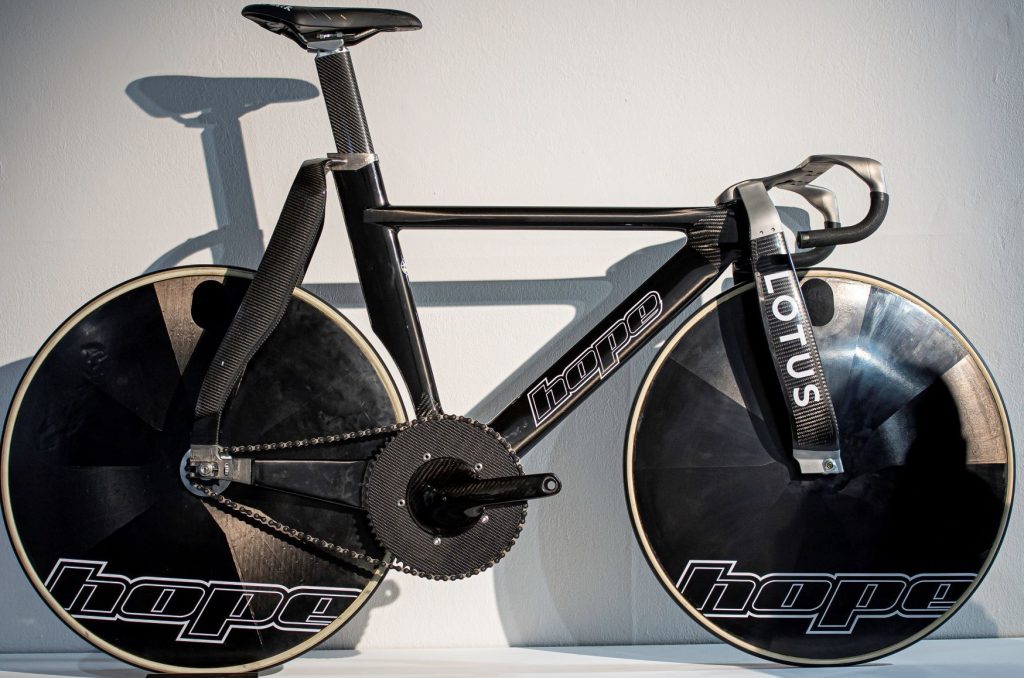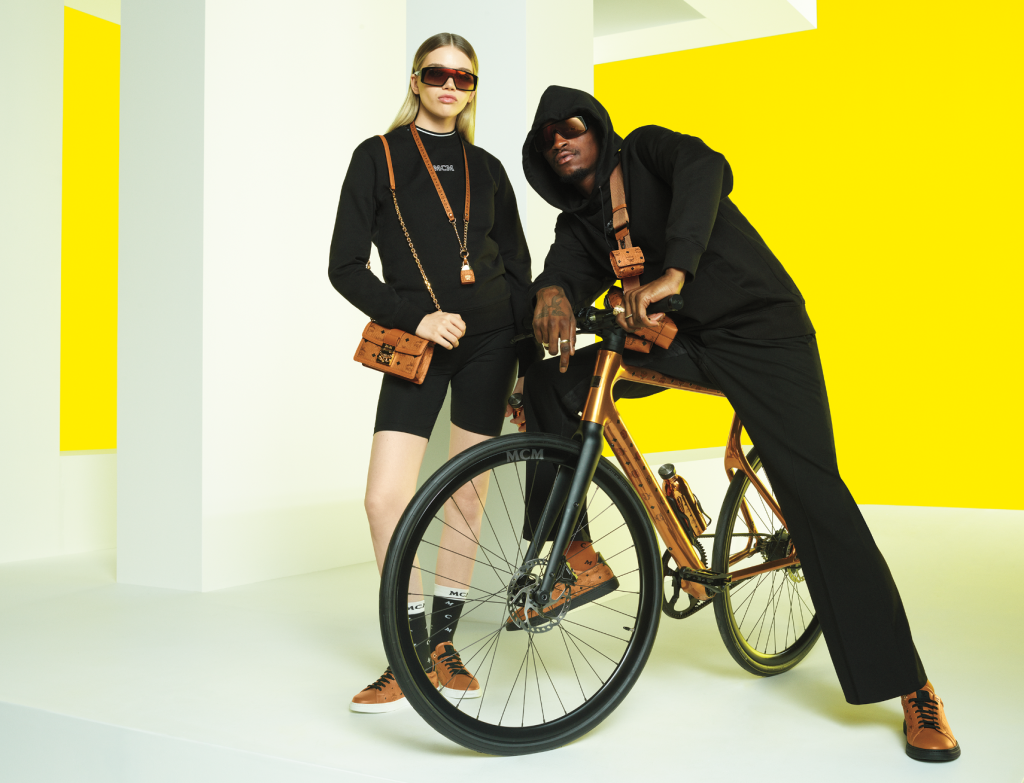Voting shortlists for the 2021 3D Printing Industry Awards are now open. Who do you think should receive top honors this year? Have your say now.
This week has been an exciting one for 3D printed bicycle enthusiasts, with Urwahn Bikes unveiling plans to produce 50 fashionable limited edition e-bikes, and UK engineering firm Renishaw revealing its role in Team GB’s Olympic cycling success.
In the case of the former, Urwahn Bikes has announced a partnership with designers at MCM to develop the ‘MCM EDT,’ a luxurious SLM 3D printed electric bicycle. Renishaw, meanwhile, has lifted the lid on how its involvement in building the “innovative new track bike” known as the ‘HB.T,’ ensured it was lightweight and aerodynamic enough, to allow Team GB athletes to hit top speed at the Olympics.
“It was exciting to see Renishaw’s additive manufacturing expertise play a pivotal part in Great Britain’s push for Olympic gold medals at Tokyo,” said Ben Collins, a design engineer at Renishaw’s Additive Manufacturing Group. “The team won three gold medals, three silver and one bronze, which was a brilliant achievement for the cyclists and a great showcase for the benefits of additive manufacturing.”
Renishaw’s Olympic assist
As an official supplier of the Great Britain Cycling Team (GBCT), Renishaw was first asked by British Cycling in early 2019, to lend its expertise to the production of its then under-wraps HB.T track bike. In particular, the organization was seeking to harness the firm’s 3D printing acumen, to integrate innovative forks and seat stays into the bike’s design, while keeping it light enough to be raced legally.
To accomplish this, Renishaw rapidly produced both plastic and metal prototypes in the early stages of the HB.T’s R&D, to ensure its parts were light, geometrically-accurate and robust enough to endure a rider’s strain. Once the bike had passed initial tests, the firm then deployed RenAM 500Q systems to 3D print aluminum and titanium parts for the cycle, like handlebars and rider-specific components.
Ultimately, Renishaw says that its contribution allowed a working prototype to be built rapidly enough by Lotus Engineering and Hope Technology, so that it was ready to be shaken down at the opening round of the Track Cycling World Cup in November 2019.
From then onwards, as they say, the rest is history. Riding a 3D printing-optimized HB.T, cyclist Laura Kenny became the most successful British female Olympian of all time in Tokyo, winning madison gold with Katie Archibald, and silver in the women’s team pursuit. The bike also helped Jason Kenny become Britain’s most successful ever Olympian, after he rode to gold in the keirin, and silver in the team sprint.
“When you do something new and brave, you have lots of difficulties to overcome, and that is where Renishaw has been fantastic,” added Tony Purnell, Head of Technology for British Cycling. “In the past, it would take months to go from the drawing board to a piece that you could try in the test rig or in the velodrome, and now we can do it in weeks.”

Urwahn Bikes’ ‘golden horse’
In other cycling news, German e-bike manufacturer Urwahn Bikes has announced its latest dabble in the world of 3D printing, with the MCM EDT. The company has produced cycle frames in this way for at least two years, having initially worked with motorbike brand Vagabund Moto to additive manufacture 100 frames for its ‘Stadtfuchs’ custom bicycles in 2019, before unveiling a new racing bike in 2020.
Developed in tandem with performance cycling specialist Schmolke Carbon, this sportier bicycle featured a 3D printed steel frame and carbon fiber parts, which was reflected in its lofty $9,369 price tag. Urwahn bikes later went on to 3D print a unified frame for AREVO’s Superstrata, before doing the same for the ‘Platzhirsch’ e-bike, which was roughly named the ‘big cheese’ owing to its huge power output.
Building on this experience of constructing high-end electric bicycles, the company has now collaborated with MCM, to develop an urban bike that celebrates the latter’s 45th anniversary. The result of their combined efforts is the MCM EDT, an exclusive bike with distinctive copper plating, that in some quarters has earned it the fitting nickname of ‘the golden horse.’
Automotive firm MAHLE has also been roped into the build, and added 250 Wh batteries into the cycle’s piping, providing it with sufficient power to run electrically for up to 80 km. This range can even be extended by another 60km, and while little has been given away about the bike’s 3D printed frame, its integrated beltport, flat mount and cable routing, are bound to be critical to its lightweight stance.
Given these premium specifications, the level of fine tuning that went into its build and Urwahn Bikes’ previous in luxury bicycles, the MCM EDT’s lofty price tag is to be expected, but at $10,960, and with just fifty set to be produced, the e-bike may well represent the company’s most exclusive (and blingy) to date.

AM-powered bike performance
Unsurprisingly, given 3D printing’s ability to consolidate multiple parts into single lightweight components, the technology has increasingly been adopted within bicycle construction over the last year. In March 2021, bike brand Silca unveiled a 3D printed titanium computer mount that was built stronger, lighter and more aerodynamic than conventional alternatives.
Similarly, Headmade Materials partnered with service bureau Element22 earlier this year, to develop metal SLS 3D printed bike pedals. Set to be mass-produced using the former’s Cold Metal Fusion (CMF) technology under the Titanium brand, the upgraded pedals were initially made available to order via Kickstarter, where they raised more than €59,000.
Much like Urwahn Bikes, Huhn Cycles has also made a splash in the 3D printing industry with its purmundus challenge-winning bike. Known as the Moorehuhn, the unique bicycle features a frame constructed from lightweight titanium tubes that are connected via 3D printed lugs, which increase the rigidity of its connection points, and its overall strength as a result.
To stay up to date with the latest 3D printing news, don’t forget to subscribe to the 3D Printing Industry newsletter or follow us on Twitter or liking our page on Facebook.
For a deeper dive into additive manufacturing, you can now subscribe to our Youtube channel, featuring discussion, debriefs, and shots of 3D printing in-action.
Are you looking for a job in the additive manufacturing industry? Visit 3D Printing Jobs for a selection of roles in the industry.
Featured image shows Urwahn Cycles’ 3D printed MCM EDT e-bike. Image via Urwahn Cycles.


